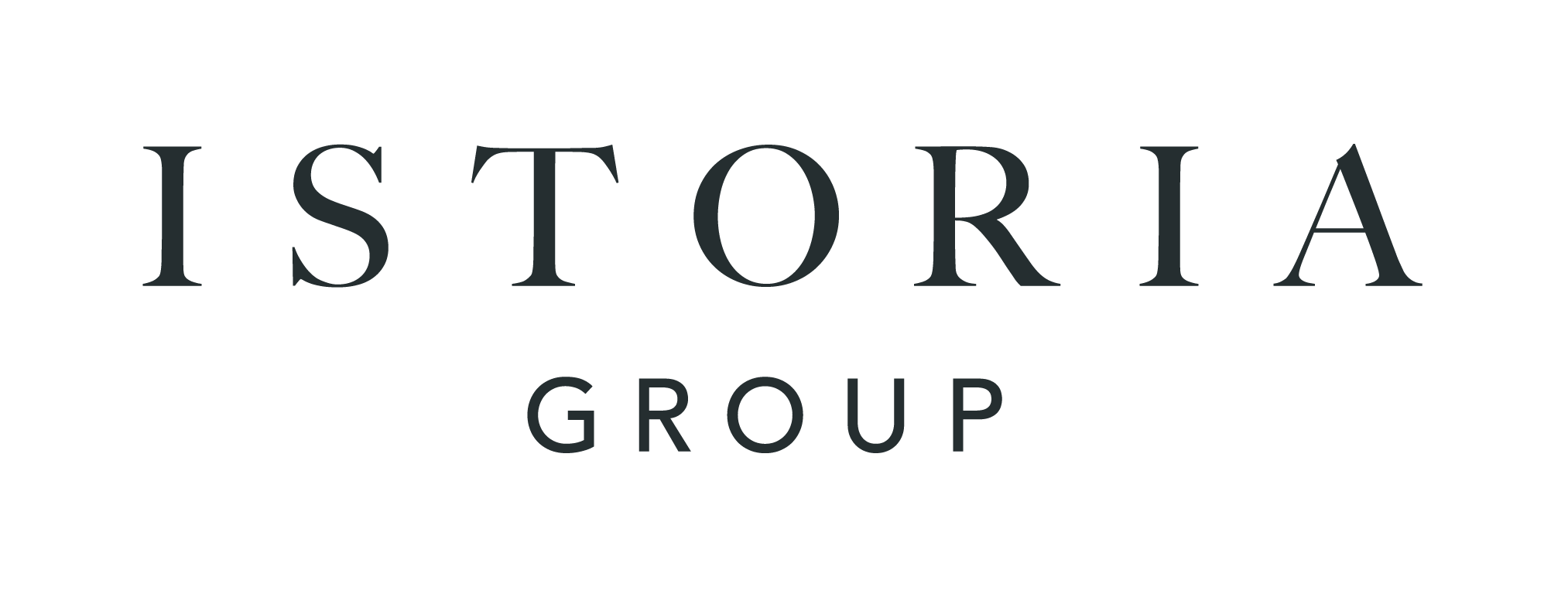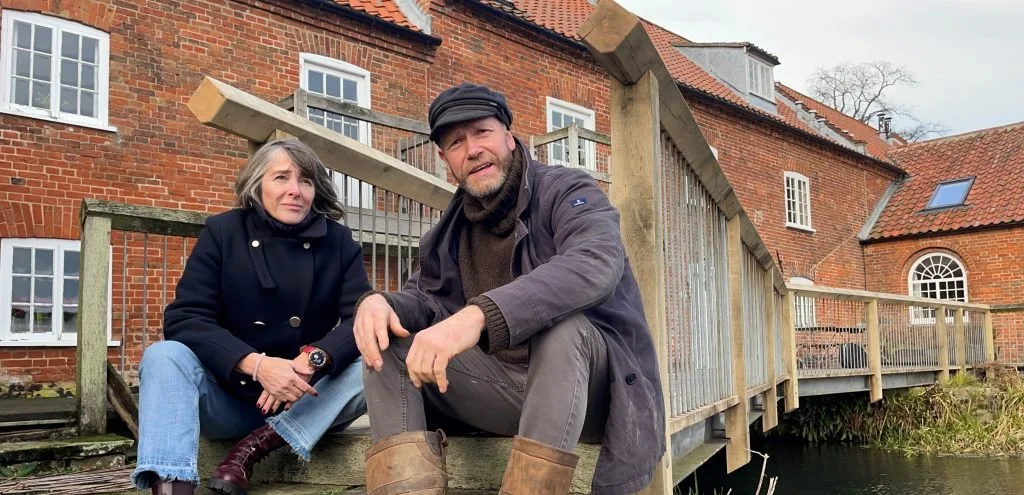Baton or boomerang?
Baton or boomerang?
Why the best mentoring is always a two-way affair.
An interview with Claire Menzies, Chairwoman & Founder, Istoria Group
Claire Menzies and current mentee James Boyd of The Norfolk Journeyman.
1. What role do you think mentoring plays – both in business and in life?
I think mentoring helps in the development of skills people weren’t aware that they had – or could have – as well as honing ones they’re already perfectly aware of. I see mentoring as the process of filling in gaps, or at least learning to recognise the skill set gaps one might need for a particular job or task or indeed for life. The big idea is to improve on the here and now in order to help people become who they want to be.
2. What are the benefits for the mentee?
The primary benefit for the mentee is a boost in confidence, which in turn allows for a more honest examination of oneself and one’s ideas. A degree of openness is vital, so that the mentor can challenge the mentee’s ways of thinking and for this to be not only accepted but welcomed.
You have to be prepared to be undone in order to rebuild to a degree, as long as this is done in a positive and productive way. The absolute basis of a good mentor-mentee relationship is trust and respect; the best results almost always come from a really good relationship connectivity.
“Over the years, Claire has always been willing to have a mentoring conversation about all aspects of business. She’s made introductions to Fortune 100 companies, has provided insights around social and environmental impact, and has provided the big thinking, strategic support that is key to being a successful entrepreneur.”
3. And how about for the mentors themselves?
As a mentor, you get to fine-tune your own thinking in real time, which is invaluable. Mentoring creates a safe and confidential space for both parties to hone their skills. It’s very important to learn to temper a good idea from your mentee without killing their enthusiasm or knocking their self-confidence. That’s a skill that has to build over time. As a mentor, you also have to be open yourself or you won’t find the right path or level to help that person.
It's also often for the mentor a question of remembering things you’ve forgotten along the way, as well as using and polishing lessons you’ve previously learnt. Then there’s the endless benefit of the stimulation of new intelligence, thoughts and ideas….
4. Did you personally have a mentor or mentor(s) in your earlier career?
I’ve had a few, though not in a formal capacity. The benefits, however, were always incredibly significant and also timely. In each case, it was an organic relationship that arrived in my life when I was in a difficult situation and helped create the safe space I referred to earlier, one that was built on total trust and respect. I learnt both how a successful mentor-mentee relationship was fundamentally a question of character chemistry, plus curiosity, mutual openness and a non-prescriptive attitude. Any would-be mentor who thinks it’s all about imparting wisdom from on high has got it sadly wrong! It has to be a two-way process and to do it well takes real energy and effort.
“Claire mentored me through the development of a new social enterprise product. She asked plenty of questions to make sure she understood all the context, and that made her advice all the more valuable and specific. It’s a rare find: someone so knowledgable who’s also willing to take the time to listen well. Claire’s advice helped me to check my instincts and refine the product with much better care for my audience.”
5. Should mentorship become more formalised do you think or is it better to be serendipitous and respond to the chance meetings life gives you?
For me, no, it absolutely shouldn’t be formalised. If you do that – and especially if you charge a fee – then you’re a coach and not a mentor. Nonetheless, you have to be in a willing ‘receive’ state for mentees to find you and so I’m happy to use the ‘mentor’ term, of course.
In the sense of having a structure, then yes, formality is a good thing, but I wouldn’t want it ever to become any kind of business relationship on a commercial basis. In my case, that would definitely take away the magic.
6. How much time do you give over to mentoring?
Around a day and a half each week in set slots, often early in the morning. A lot of the time, I’m just answering questions of course. Often you’re coming into a mentee’s life at a point where he or she is floundering or considering a change of direction. Discussing a multiplicity of options demands a lot of input time.
“I am grateful to have Claire’s energy and expertise in my life. I have realised that no one creates anything special alone and I am driven to pass on the valuable things I have learned to my own students and the people I care about. I have learned to hold myself accountable for all my results and that the pain of sacrificing values or purpose is something to avoid like the plague.”
7. In your experience, how long and how in-depth does the mentoring relationship need to be to produce real benefits?
There is definitely an arc to business mentoring, from the ‘Storming and Forming’ early stages until the challenges finally start to fade. The key timeframe depends on the individual project in hand and its time to market, with the transition to growth usually the most time-consuming phase. Towards the later stages, it’s mostly about checking in and going back over strategies to see what milestones have been achieved and what still needs to be done.
You’re rarely working towards a named ‘end point’, however, and so the relationship, whilst focused, doesn’t ever close off completely. The individuals I’ve worked with always come back, even if just to report back on news, advances, achievements or new challenges.
8. Who mentors the mentors? Should leaders also have access to some form of continuous learning do you think?
For me, continuous learning is a state of mind, so I don’t feel the need to be taught or directed in that sense. If you’re looking for inspiration, then you’re constantly being mentored by the world at large. But yes, I do also learn directly from people I come across in life, once that same relationship of trust has been established. I believe mentors naturally find other mentors, usually because of a shared belief in cascading knowledge and the willingness to pass it on. Humility is also key. I often ask for advice for example. There’s never any shame in asking. How else would we learn?
Claire Menzies discussed the benefits of mentoring in the workplace, and how businesses benefit from upskilling their employees in a guest article for Business Leader. You can read the article by visiting Business Leader.

